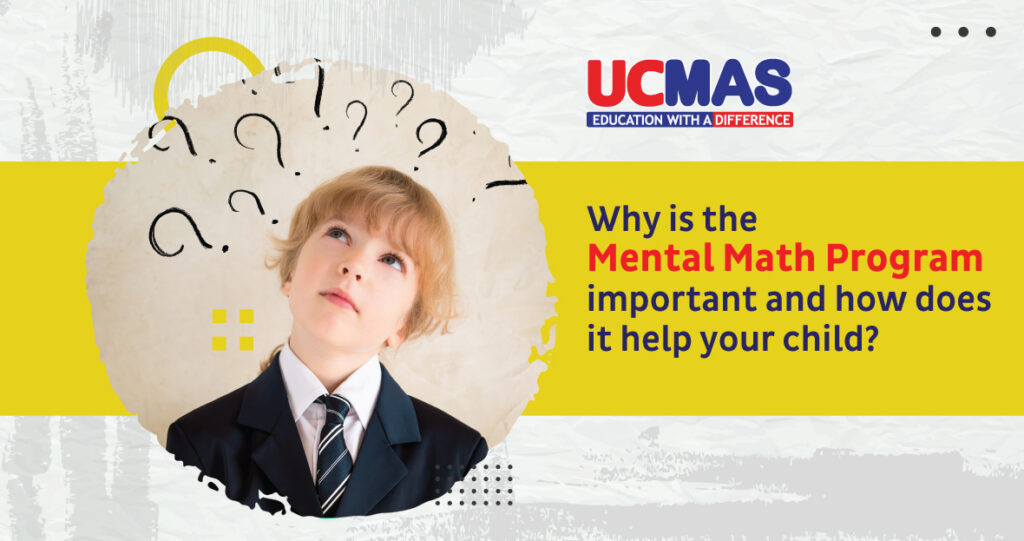
Mental Math is a very useful skill; yet remains as one of the most under-developed one. Mental math isn’t formally taught in most schools, and students aren’t able to answer easy problems in their minds quickly, they struggle with difficult equations. And this struggle keeps parents in constant thought of, “How can their child improve their math skills? What can they do to make them proficient in math?”
So, what is Mental Math and how does it make a difference in a child’s life?
Mental math is a set of cognitive methods that enhances flexible thinking and numerical sense. It is the skill of mental calculation without the need for external memory aids. It boosts computational fluency by increasing efficiency, accuracy, and flexibility.
Or, from the students’ point of view, it is
- Math performed in your brain
- Mental Math is a great way to get your brain going
- To perform math instantly, without the need for operations and procedures
- Math that you know so well that you don’t need to write anything down to make calculations or discover the solution
- Math that doesn’t require you to take the help of a calculator or any other mechanical device
Number sense cannot be taught, it can only be developed. Mental math is a consistent part of instruction in computation from primary through the elementary and middle grades.
Few reasons that describe the importance of Mental Math Program:
Applications are numerous: Mental math has several uses in everyday life. Mathematical applications may be found everywhere, from ensuring you don’t get ripped off at the grocery store to planning for your next trip, the list is endless.
Enhances observation skills: It helps in the development of relations between different things, in this case, numbers. One becomes aware of how numbers interact with one another, which is a necessary skill for loving math. Math concepts build on each other, and having a sense of numbers is essential for understanding complicated concepts.
Improves mental health: According to a recent study, mental math activates the dorsolateral frontal lobe, which has previously been associated with depression and anxiety. It also implies that the more active a person’s dorsolateral frontal lobe is, the more likely he or she is to change their thinking in challenging situations.
Brain stimulation: Practising mental math maintains our brain and keeps it sharp, and enhances our learning ability. While mathematical skills are often associated with the left brain, mental math stimulates the right brain, which is responsible for imagination, visualisation, and creativity. Mental math encourages one to think of innovative solutions and visualise numbers, which involves the use of one’s right brain.
Students rarely calculate mentally these days, with calculators easily available in phones and tablets. At UCMAS, we strive to assist students to bridge the gap to achieve better by adapting to their learning pace and style. This guarantees that kids develop excellent critical thinking skills that will serve them well throughout their academic careers and help them improve their Mental Math.





